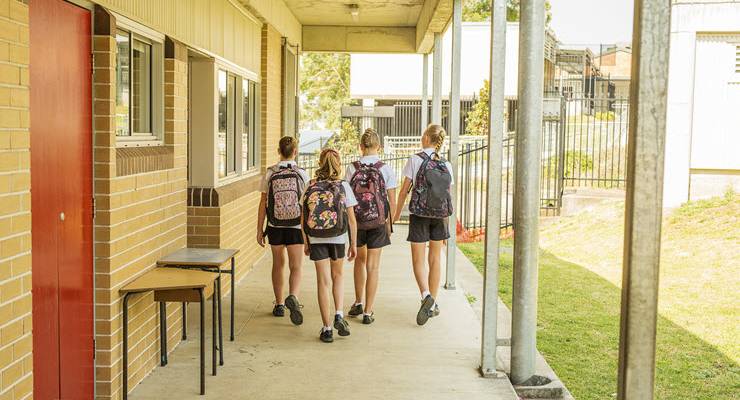
Public health experts have warned of the risk of closing down schools too late, as New York City becomes the latest city to shut its doors to students.
Raina MacIntyre, professor of global biosecurity at the University of NSW, told Crikey school closures only worked if they were done proactively, as part of a broader lockdown.
“You can’t leave it too late to when the health system is falling down. You need to do it as a proactive measure, shutting down as much as possible,” she said.
Professor MacIntyre said while it was not too late for Australia to start closing schools, the countries that had been most successful at containing the virus had done so early.
“Basically countries that have taken drastic social distancing measures early on have contained the epidemic,” she said.
Laureate professor Nick Talley at the University of Newcastle told Crikey Australia ran the risk of falling behind the curve if it didn’t start to act on closures soon.
“I don’t think we’ve left it too late already but I think we should be doing it now,” he said.
“We’re on a curve that is exponential, and we need to act as quickly as possible.”
While new social distancing measures have been announced for schools in New South Wales, such as cancelling school excursions, Chief Medical Officer Brendan Murphy said on Sunday it was “too early” to close schools.
“There is no question we have a range of social distancing measures that we will not hesitate to recommend to government, but they’ve got to be proportional and they might last for a long time,” he told ABC’s Insiders.
“So you don’t want to move too early.”
Prime Minister Scott Morrison said on Sunday that there was no requirement for schools to close yet.
“People are naturally anxious about the issue of schools,” he said.
“As the British chief medical officer observed over the last couple of days, the issue of widescale closure of schools, it may be anti-intuitive, but the advice is this could be a very negative thing in terms of impacting on how these [disease] curves operate.”
Professor MacIntyre said the herd immunity approach currently being considered in the UK, which involves shielding at-risk groups like the elderly and sick and then letting COVID-19 sweep through everybody else, was “completely wrong, half-baked and dangerous advice”.
“That would just result in a bigger epidemic, a bigger peak and a massive surge,” she said.
“It is wrong, and the purpose of social distancing is to delay it, to reduce the impact, to flatten the curve, until we have a vaccine.”
Talley said schools may only have to close in certain cities, and could be closed over a number of days to ready parents in the workforce.
“We shouldn’t cause panic. But on the other hand if we wait for evidence that we haven’t flattened the curve it becomes too late very quickly,” he said.
“If we have a huge outbreak, and the evidence suggests we probably will, the economy will shut down anyway.”
New York City will largely shut down its public school system this week, the first US city to do so. Schools have been shut down as part of sweeping lockdowns across Europe, the new epicentre of the virus. Spain and France have followed Italy in introducing strict lockdown measures, and Belgium and Switzerland have also made closures.
“Europe is the absolute epicentre now,” MacIntyre said. “It is catastrophic in Europe. Cases are surging in France, Spain, Germany.”








Crikey is committed to hosting lively discussions. Help us keep the conversation useful, interesting and welcoming. We aim to publish comments quickly in the interest of promoting robust conversation, but we’re a small team and we deploy filters to protect against legal risk. Occasionally your comment may be held up while we review, but we’re working as fast as we can to keep the conversation rolling.
The Crikey comment section is members-only content. Please subscribe to leave a comment.
The Crikey comment section is members-only content. Please login to leave a comment.